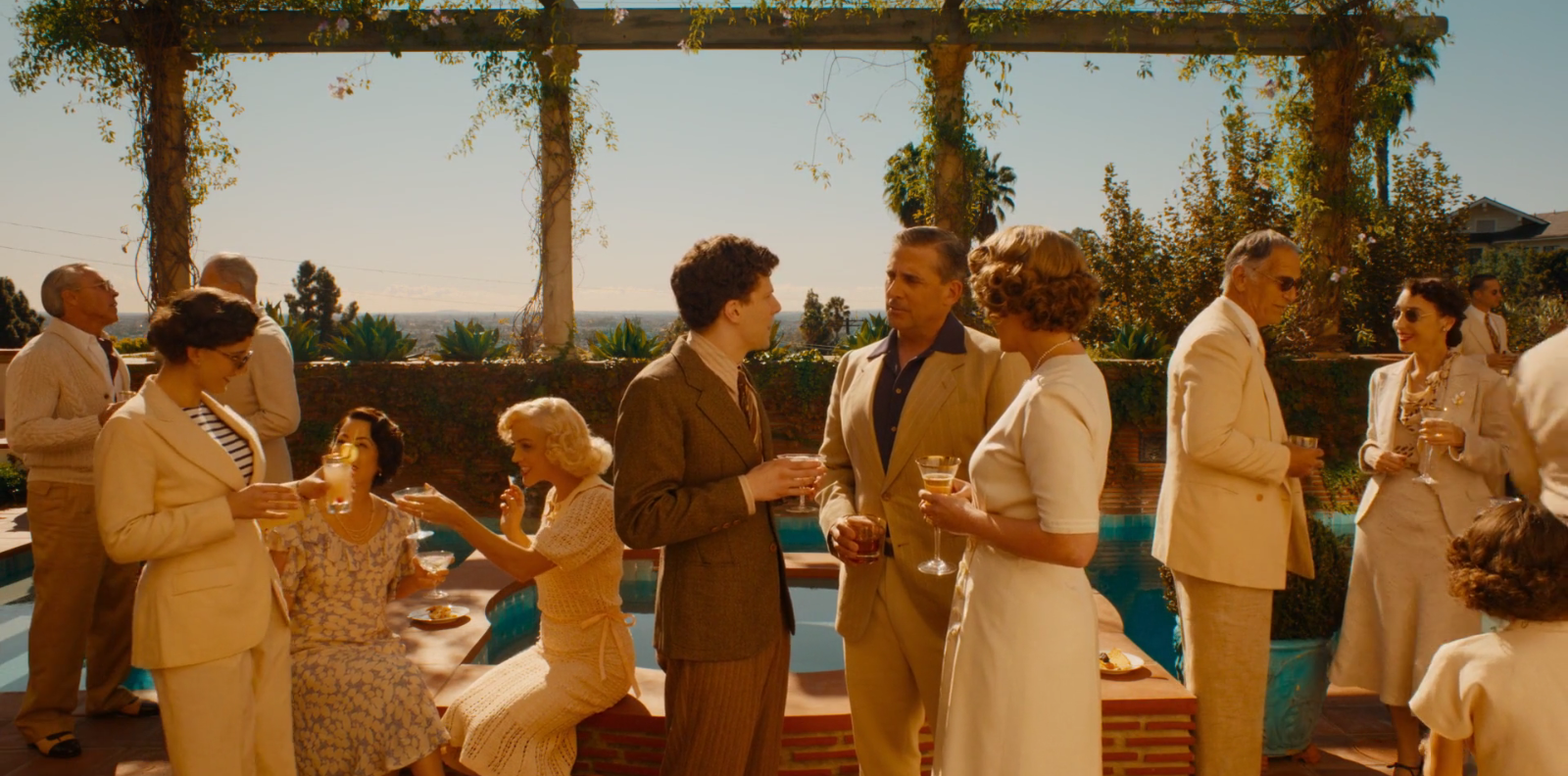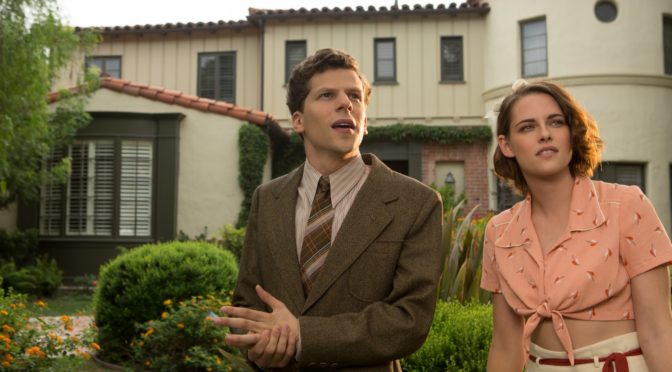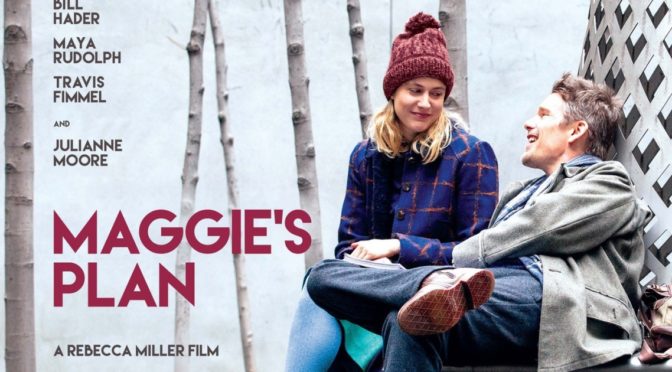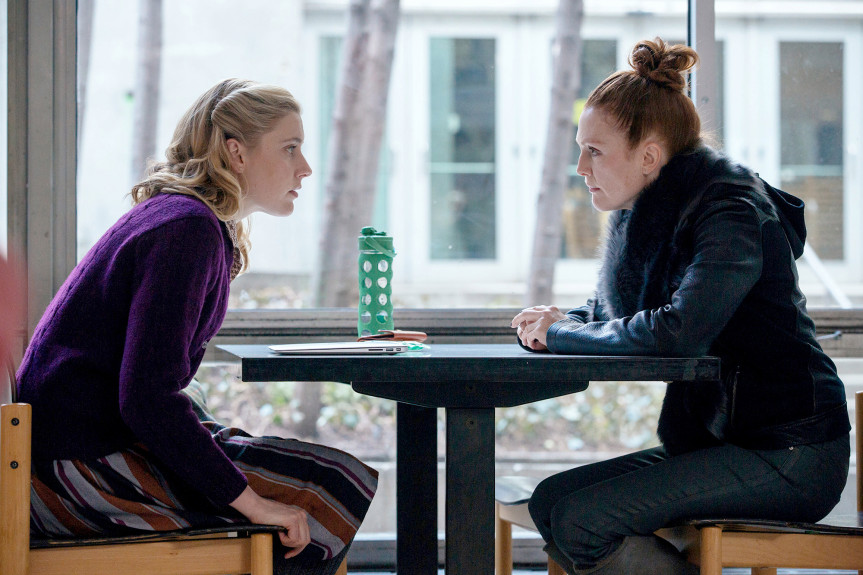Café Society continues Woody Allen’s love affair with the past. While Midnight in Paris had him going back to the 1920s, here we have a glossy depiction of the 1930s. Jessie Eisenberg (The Social Network) plays Bobby, a young Jewish man from New York City who moves to Hollywood hoping that his successful agent uncle Phil (Steve Carell; The Office) will give him a job. Deliberately estranged from his family and career focused, Phil ignores Bobby for weeks until finally offering him work doing odd jobs. Since Bobby doesn’t know anyone in the city yet, Phil asks his secretary Vonnie (Kristen Stewart; Clouds of Sils Maria) to show him around town. Bobby soon falls for Vonnie and even though she clearly has feelings for him, she can’t reciprocate because she is already in another relationship.
The film is decidedly safe territory for Allen. The tropes are well worn with the characters almost prewritten. Bobby is Allen’s typical protagonist, meaning he is Woody Allen himself, but the performance is inconsistent. Eisenberg oscillates between his own shtick, the fast talking staccato phrases from The Social Network, to Allen’s self-deprecating nervous ticks. The standout performance is Kristen Stewart’s. Her anti-commercial attitude contrasts nicely with the materialist celebrities and big shots Phil socializes with and makes her the one down-to-earth person in a Hollywood filled with superficiality. The clothes she wears only add to her appeal and further distinguish her. The other characters are dressed in period appropriate clothing but Vonnie’s outfits, while perhaps overly twee, are more like a present-day fashion brand’s lineup of ’30s inspired clothing than something actually of the era. They add a modern twist to the old fashioned elegance. Vonnie’s combination of unique personality and looks make it only natural for Bobby to be so deeply interested in her.

The film leans heavily on its visuals. The famous cinematographer Vittorio Storaro (Apocalypse Now) lovingly recreates the era. This is Allen’s first film shot digitally and he and Storaro take full advantage of the format’s advantages when it comes to color correction. Scenes alternate between being shot in sepia tone and bathed in golden light from a sun that appears to be constantly at dusk. Does it make sense that everything seems take place before sundown? No, but it doesn’t matter. Their goal is to capture nostalgia and they achieve it. This artifice sometimes removes the scenes from any sense of reality, but is worth it for the gorgeous colors.
It’s the lack of emotional involvement that ultimately debilitates the film. There are brief moments when complications arise in Vonnie and Bobby’s relationship that entice, but most of the film is only engaging because of its visuals. Characters seem to be defined by quirky mannerisms rather than internal motivations. These idiosyncrasies can be momentarily amusing but aren’t enough to build any character depth. Even Vonnie, the film’s best and most fully developed character, eventually becomes like the other Hollywood socialites. Her previously attractive traits are gone and with them the film’s charm. Like many of the stars at Phil’s parties, Café Society is visually attractive, unoffensive, and provides a few laughs, but isn’t substantial enough to stop it from joining the list of Woody Allen movies no one will be able to remember a few years from now.

3/5 stars.



